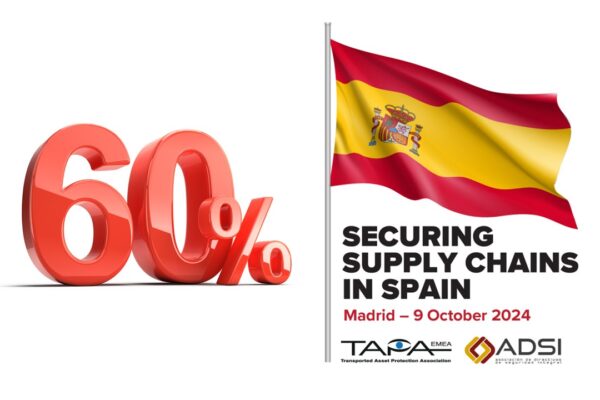
Experts Discuss Supply Chain Resilience Risks and Solutions in the Nordics
TAPA EMEA’s Nordics Regional Conference in Copenhagen this month gave supply chain security stakeholders plenty to think about with a host of subject matter experts discussing current cargo crime risks, impact on goods during carriage, and the loss prevention perspectives of NSAB 2015 and the contractual relationships binding the freight forwarding industry together.
Delegates from the manufacturing, freight and logistics industries were joined by insurance professionals and other supply chain security stakeholders to also hear the views of academics, cyber security experts, customs, and law-enforcement specialists as the event took a deep dive into real incidents of cargo crime and loss prevention in Scandinavia as well as preventive measures and sustainability solutions to achieve long-term resilience.
Following an introduction to TAPA EMEA by the Association’s President & CEO, Thorsten Neumann, Chair, Marcel Saarloos, and Senior Manager Standards, Training & Certification, Markus Prinz, keynote speaker Leonie Buthey, Senior Manager Security & Loss Prevention, A.P. Moller – Maersk, opened proceedings by giving a global perspective of the kinds of business and security risks impacting the logistics industry and an organisation operating across all modes of transportation. As well as outlining the company’s security program and security risks, she highlighted many of the factors dominating the company’s thinking when it comes to security including:
- The cost-of-living crisis which continues to dominate the global risk environment and will continue to do so over the next two years
- Climate action failure will also dominate the next decade and increasingly become a major factor in the supply chain resilience programmes of major international businesses as well as their partners and suppliers of all sizes
Maersk is not alone in expecting the next phase of economic reality to bring more risks of stagnation, divergence, and distress for businesses.
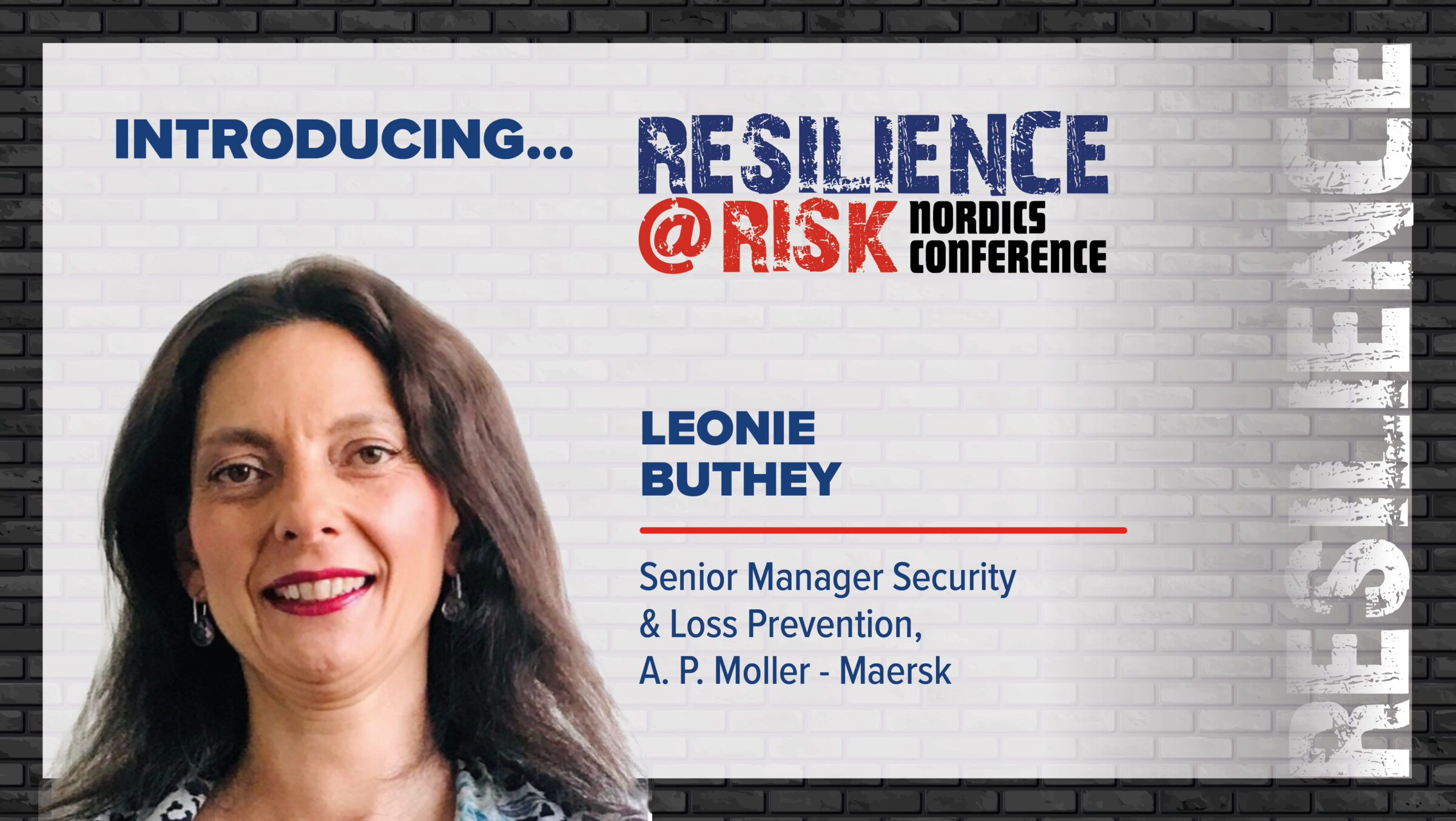
Leonie discussed Maersk’s ‘Essential 8’ approach to specific risks most likely to cause harm to the company’s people and assets. The campaign provides a simple and effective employee engagement to design and involve everyone in building a strong safety and security culture.
In terms of current security initiatives, she presented one of Maersk’s special projects looking at container security seals. It is currently developing a new seals protocol with different levels of seals for various purposes to address challenges which are well-known within the logistics industry involving tampering with the combinations of seals and locks, as well as counterfeit seals. In 2024, she said, Maersk will launch a new seals’ policy.
Looking further ahead, Maersk’s Threat Analysis special project will be looking at AI and machine learning as well as data sources and preventive measures.
The types of threats companies like Maersk and others face today, and will increasingly face in the future, were also highlighted in presentations by speakers Leif Pedersen, Claims Manager at FREJA Transport & Logistics, and Rytis Gilys, Senior Manager at RV Transport. Leif gave an insightful analysis of cargo crime risks and other claims issues related to goods during carriage, based on the company’s 35-years’ experience of operating strategically placed offices in Denmark, Sweden, Norway, Finland and beyond.
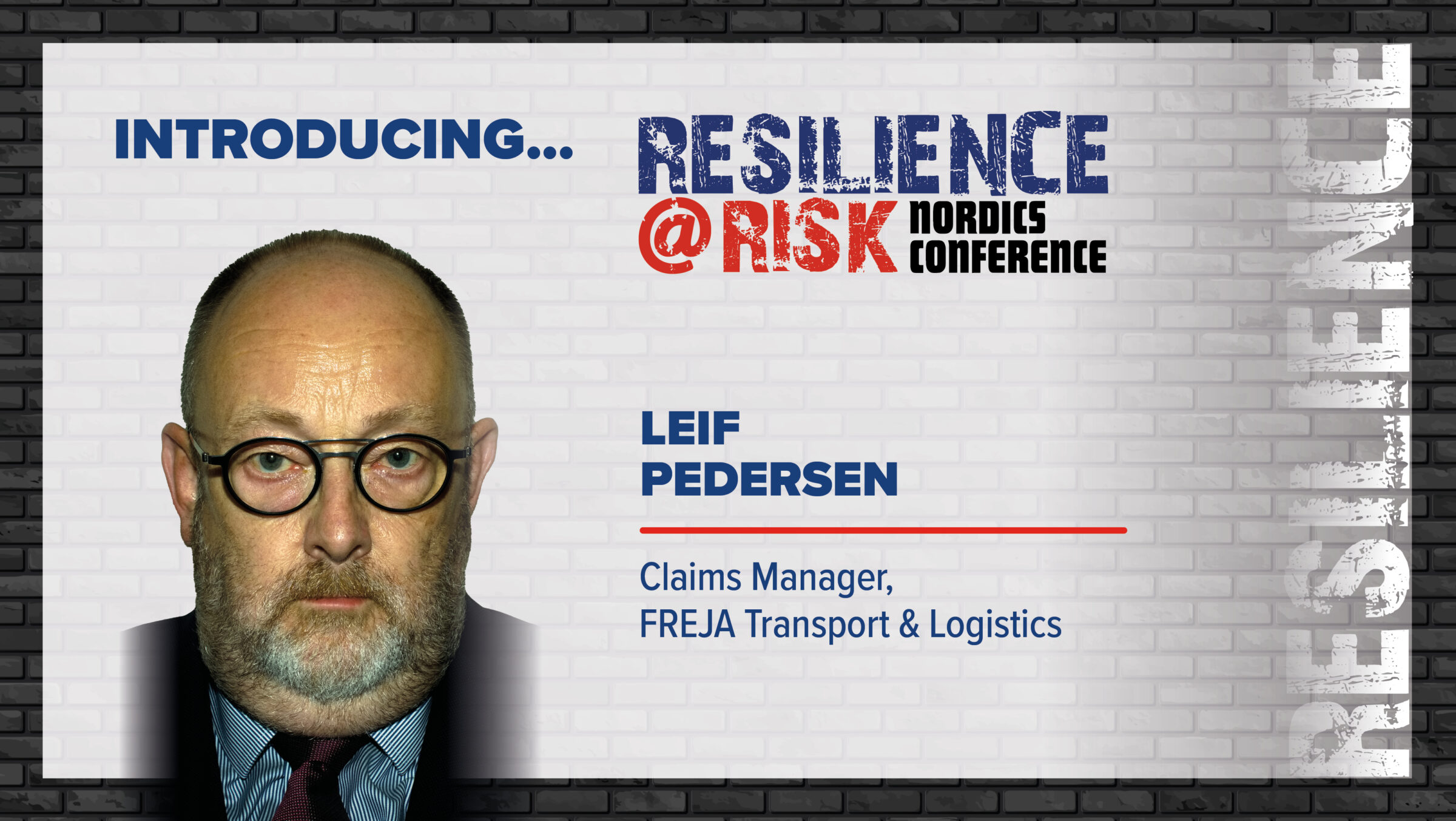
Rytis gave his own take on resilience risks in the Nordics with a country-by-country presentation on daily operational challenges facing transport providers in the Scandinavian market. He offered advice on how to make supply chains in the region more secure based on RV’s operation of over 50,000 FTL transports in the Nordics market in 2022.
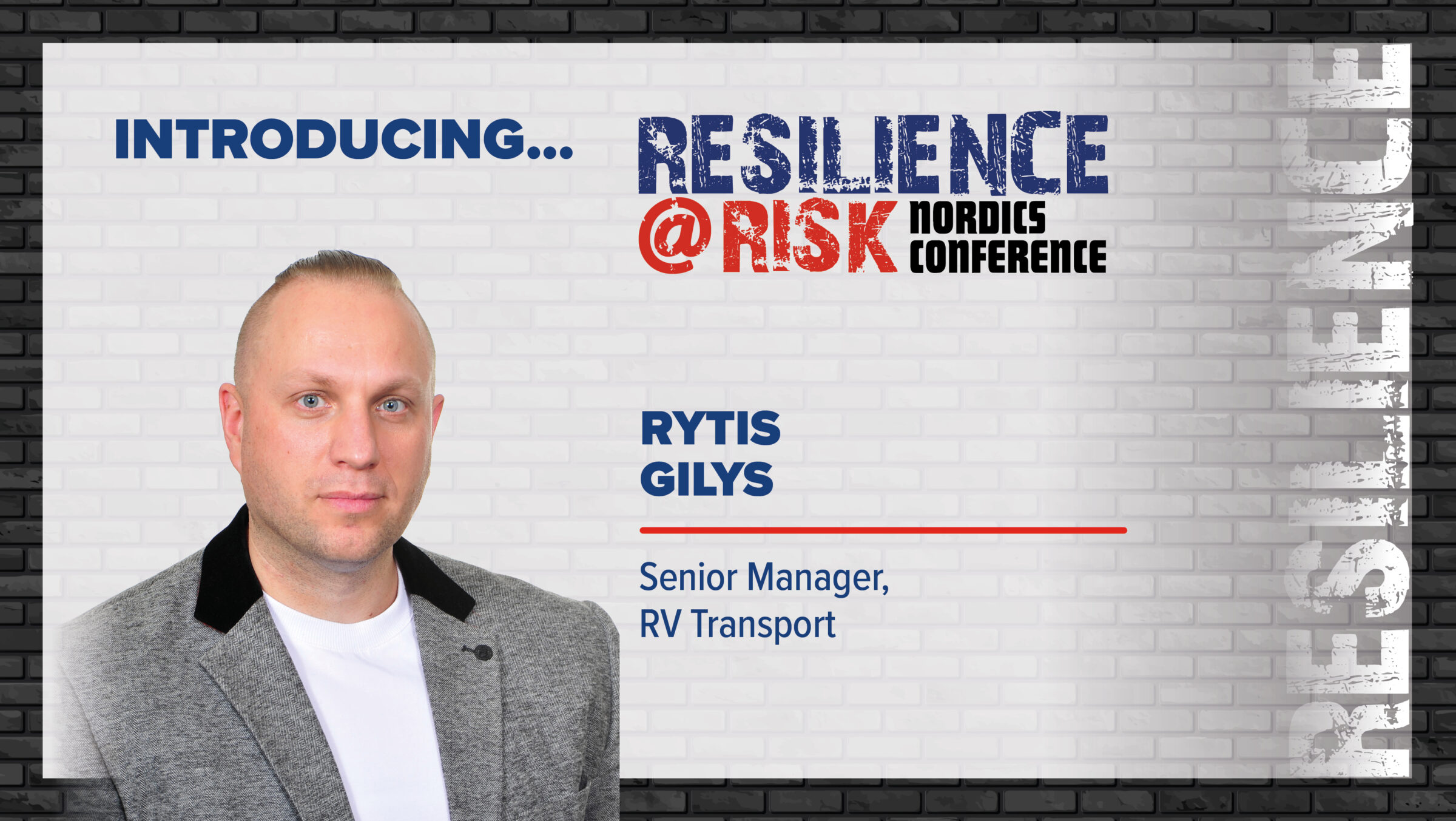
He discussed the challenges of dealing with disruptions connected to ports and ferries, and the need to focus more on driver welfare and to address the lack of secure parking locations, which is as prominent a handicap across Scandinavia as it is in the rest of Europe. Other factors causing potential delays to the movement of goods include strikes and extreme weather.
RV Transport, he added, relies heavily on the TAPA EMEA Intelligence System and other intelligence providers for cargo risk and security updates to avoid such disruptions and areas regarded as cargo crime hotspot. He focused on current risks in Sweden and Norway in relation to fuel siphoning crimes and focused on key geographical areas seeing the highest number of these incidents. He went on to inform delegates about safe roads and safe areas for drivers to take rest breaks and addressed the operational differences and challenges between the summer and winter seasons n the Nordics.
He reinforced TAPA EMEA‘s message about the importance of sharing intelligence on cargo crime incidents and threats, which he sees as a key element in helping to make supply chains more resilient across Scandinavia and in the wider Nordic region.
The conference was also joined by two leading law enforcement specialists: Damir Celebic, Investigator, Regional Crime Coordination Unit of the Swedish Police Authority, and Lars Haugaard Thomsen, Coordinator/Special Consultant with Danish Police.
Swedish police are heavily involved in a road collaboration project with the country’s road transport industry, heavy equipment contractors, and insurance companies to counter the significant volume of crime impacting supply chains, particularly in southern Sweden, the location for 45% of reported thefts and, especially, in Helsingborg and its surrounding area, which police statistics show as accounting for 23% of recorded thefts in 2022.
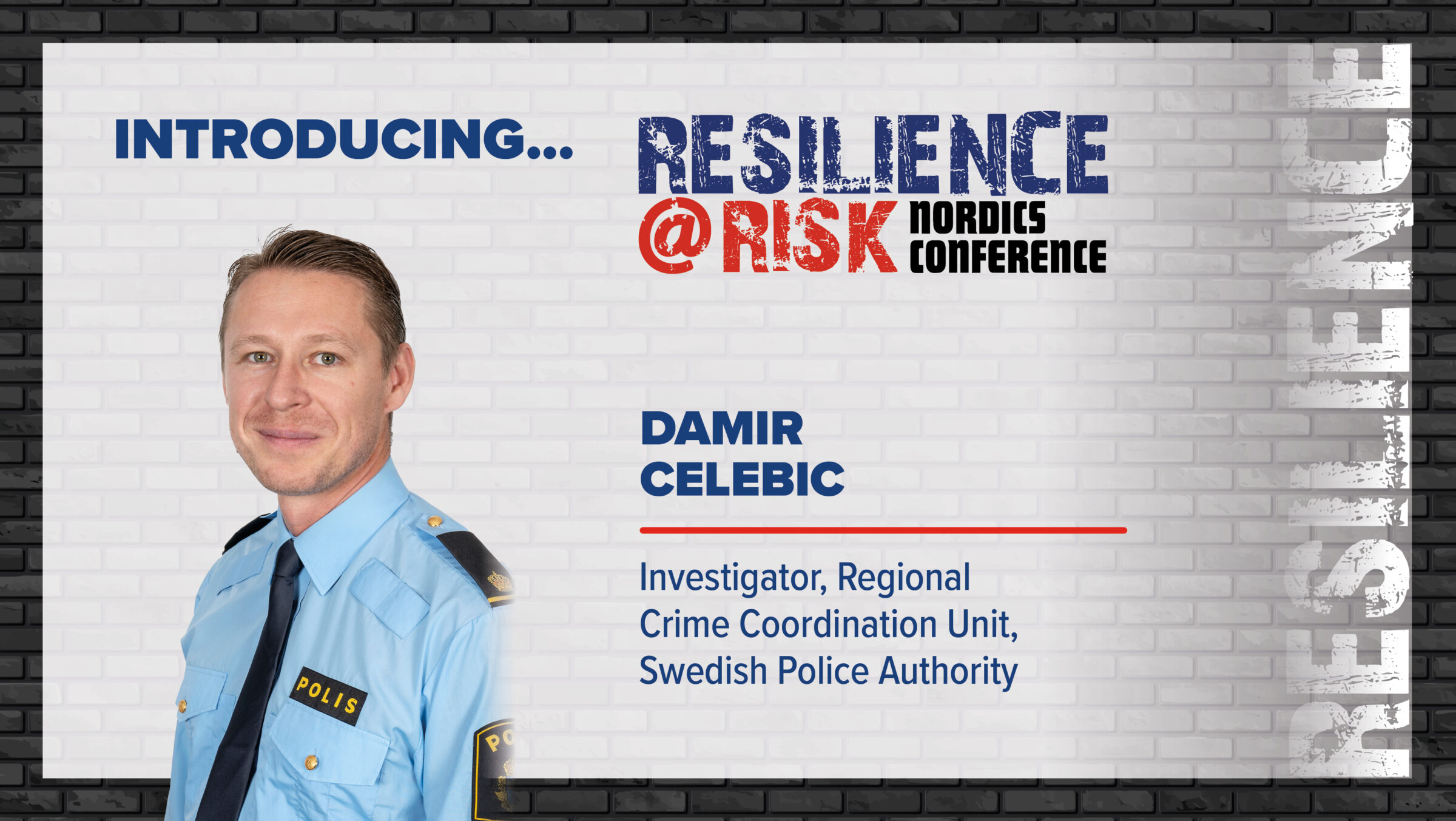
Police data totalled 1,014 reported thefts from trucks in Sweden, which tend to involve traditional tarpaulin cutting crimes, mostly at night and rarely involving any degree of violence. Damir also acknowledged that cargo crime in Sweden remains under-reported.
As in the rest of Europe, Sweden suffers from the activities of both highly organised crime networks, often equipped with their own vehicles and trucks as well as high levels of inside Information, operating across large geographic areas. These groups, he said, have established international connections to sell on stolen goods and treat cargo theft as a business. In some cases, OCGs even own transport companies. Small-time criminals are also highly active across the country.
The Swedish insurance industry is now dealing with around 1,000 crime reports on cargo thefts every year, with the three biggest Swedish insurance companies paying out approximately €3.5 million annually in claims to settle cargo losses. However, this is regarded as only a fraction of the value of the stolen products targeted across the country. They include electronics, home appliances, construction products, tobacco, alcohol, food, medications, and clothing.
A special ‘tip line’ introduced as part of the road collaboration project is helping to gather more information for police and industry stakeholders, and Sweden’s law enforcement agency is also producing monthly and yearly reports giving data on affected locations across the country.
Training is also being provided through the Swedish Association of Road Transport Companies for truck drivers and other personnel to give them a better understanding of risks and how to take the right actions when faced with a potential cargo crime situation. Advice is also offered on how to assist the police with investigations into cargo crime.
Lars discussed the green border between Denmark and Germany, highlighting challenges such as illegal migration, illicit movements of drugs and weapons, as well as stolen goods, and explained special projects involving Europol to target active crime groups, particularly from Poland, which are known to be working in Denmark and targeting supply chain industry.
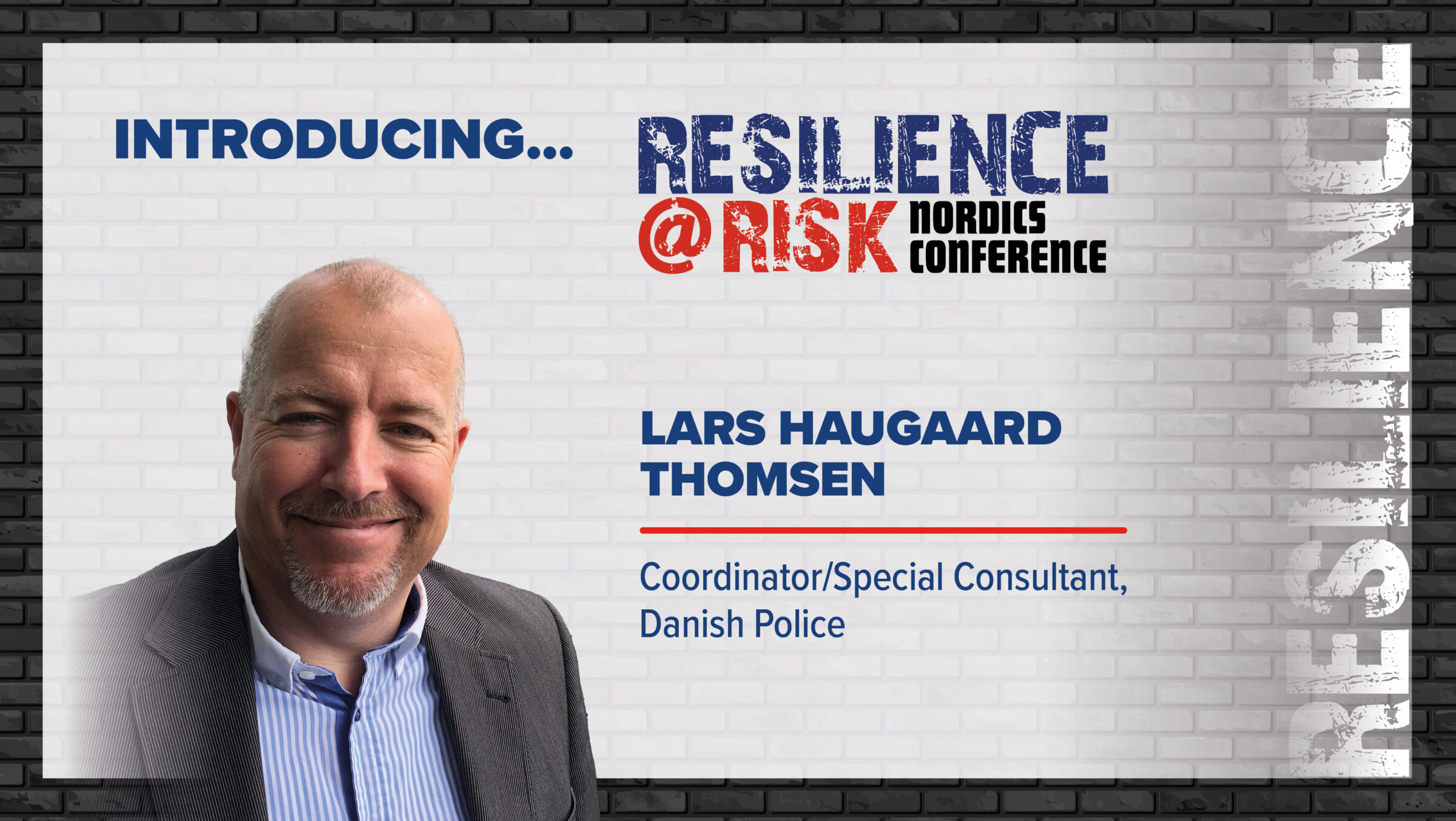
He described criminal groups operating in Denmark as ‘professional, picky, well-trained in policing methods, internationally active, quick and agile’. He highlighted case studies of police targeting cargo criminals, including incidents involving fake manifests and a professional gang of Albanian cargo thieves, living in Sweden and with a connection to Denmark, who were targeting lorries in unsecured truck parks.
Speaking on behalf of Swedish Customs, Oscar Lindvall, Deputy Head of Swedish Customs Control Unit, Southern Sweden, looked at the history of the customs organisation, one of the oldest authorities in Sweden. His presentation looked at before and since Sweden joined the EU and, since 2016, the sharp rise in the smuggling of narcotics into Sweden. He also explained the challenges of dealing with the high volume of vehicles and cargo crossing the Oresund Bridge daily – over 25,000 vehicles every 24 hours. This is in addition to the 3,000 lorries arriving at the port of Trelleborg every day, and commercial vehicles crossing the border after arriving onboard ferries, including daily crossing from Poland and Lithuania.
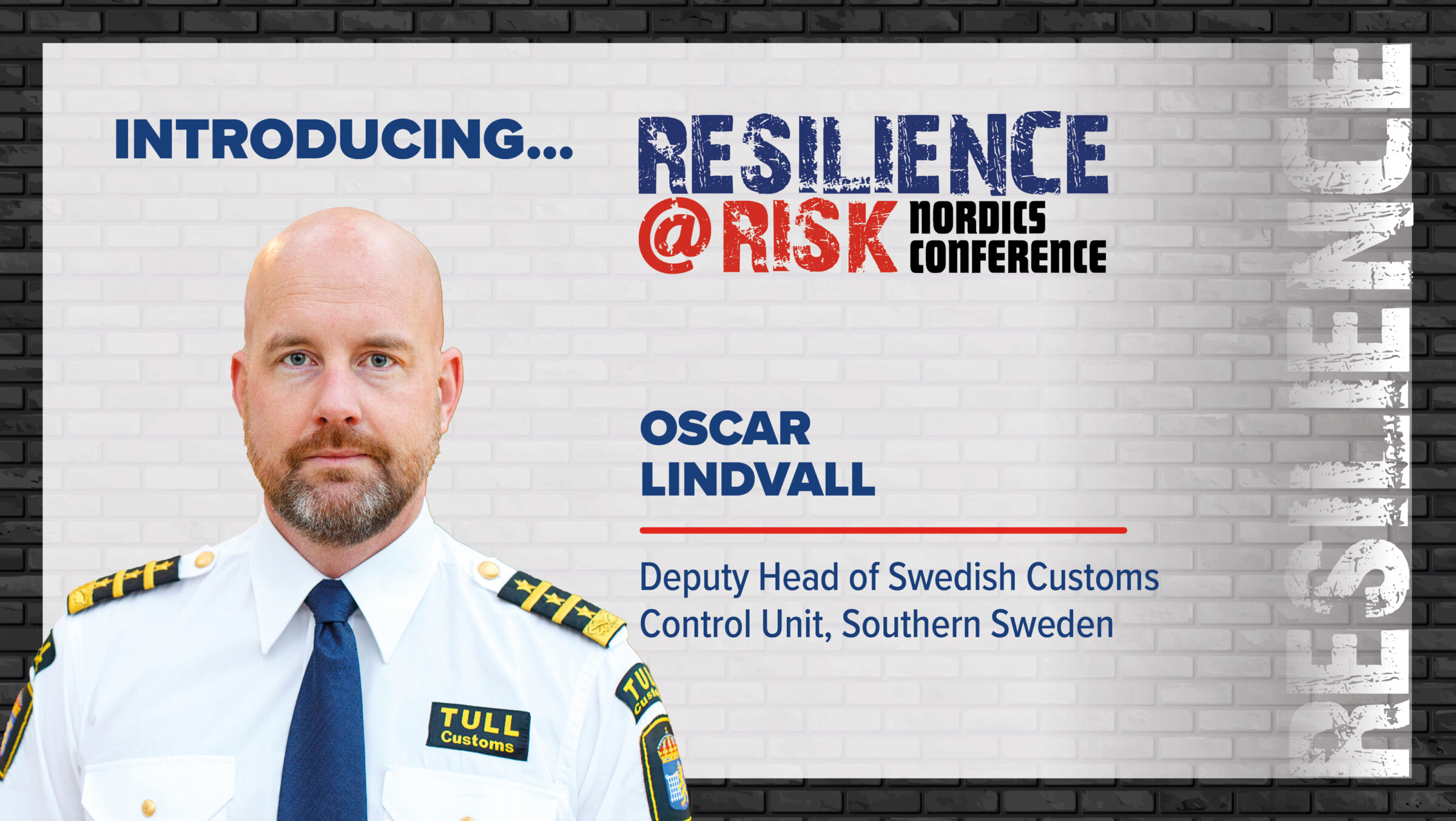
Oscar also presented case studies concerning illegal shipments of weaponry and drugs successfully intercepted by customs officials before they could reach their intended destinations across the country.
The threat of cybersecurity clearly extends beyond the borders of the Nordic countries. TAPA EMEA delegates heard two fascinating presentations by Petri Kuivala, CISO Advisor at Hoxhunt, and Tomas Bodeklint, Research and Business Developer, Safety and Transport, RISE Research Institutes of Sweden.
Petri and Tomas provided case study examples of cyberattacks, and offered advice on how companies can better protect themselves and their customers. The fear, especially for smaller transport and logistics providers, is that they could become a gateway into a major global client because of poor IT awareness and insufficient systems.
Petri highlighted the ‘kill chain’ cyber response and where he would suggest companies put their money to mitigate or address a threat. In his view, employees can be the secret source to managing cyberattacks. The key, he said, is to treat people as individuals, to have repetition in processes, to measure everything, and to treat people positively by recognising the importance of giving feedback to help them understand the value of their actions in identifying, for example, a malicious email.
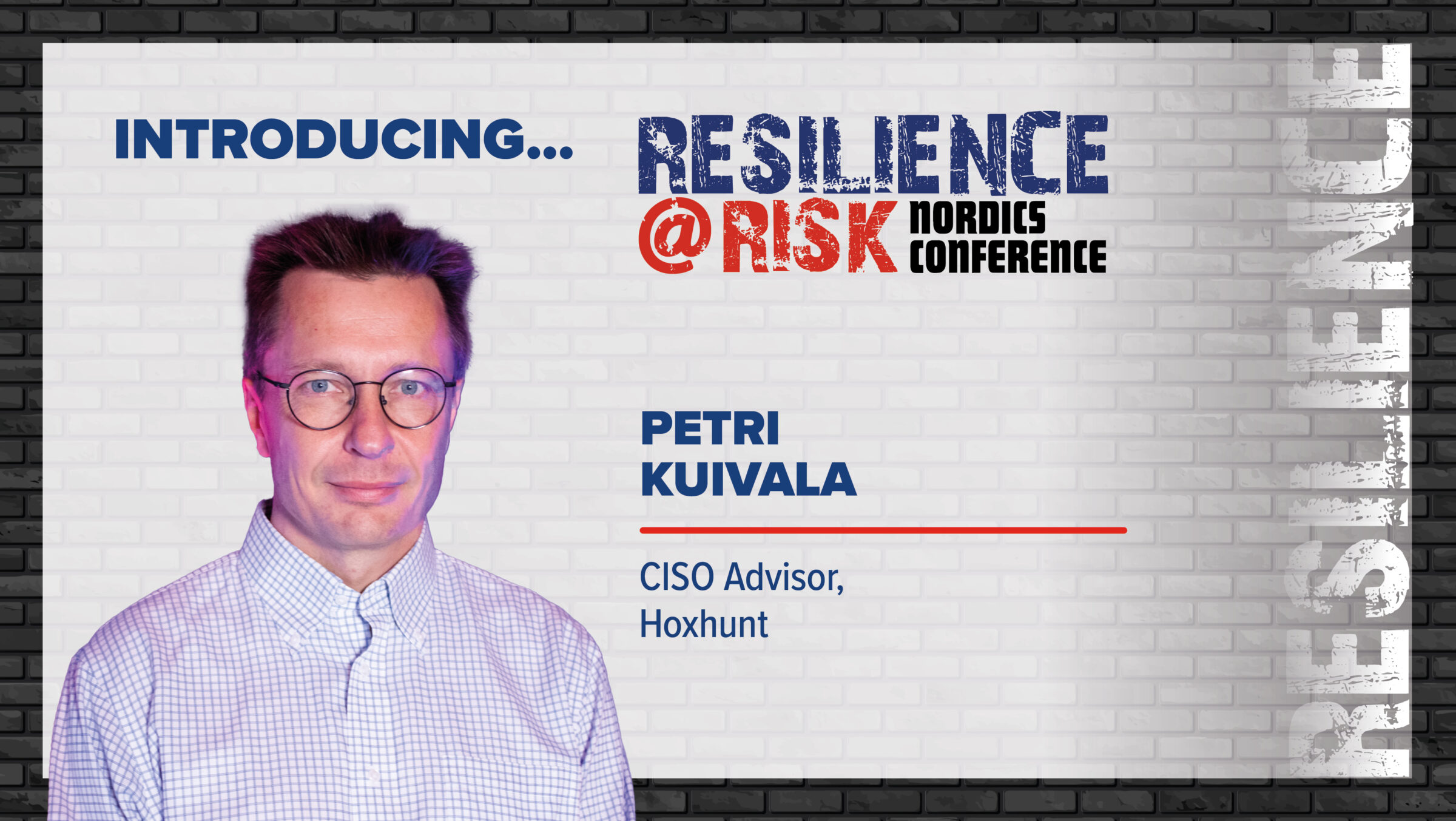
This was the theme picked up also by Tomas, whose research shows that 20% of employees are now receiving sophisticated cyberattacks annually, a topic industry seems reluctant to recognise or talk about. He discussed the threat landscape from the perspective of countries, companies, and individuals, giving examples of well-publicised attacks on major companies and organisations. He also talked about regulatory trends in Europe, including the Cyber Resilience Act and presented a cyber security framework. A cyber security management system, he said, means having a systematic risk-based approach, defining organisational processes, responsibilities and governance to treat risk associated with cyber threats. He went on to highlight requirements for a cyber security management system.
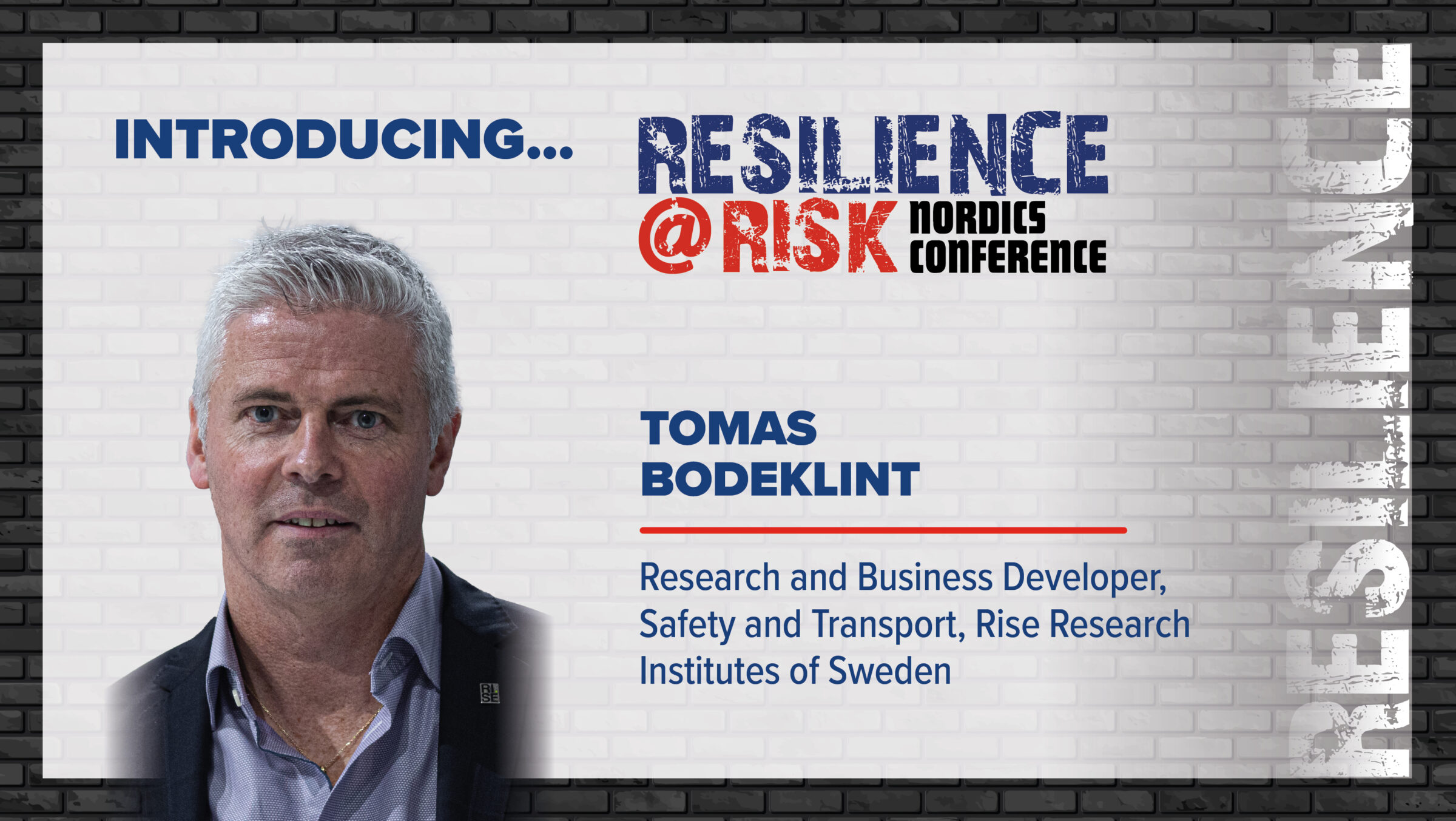
In sharing his views on cyber security challenges in the logistics space, Tomas spoke of a lack of common view between actors in the logistics chain in terms of what to protect from cyberattacks and how to collaborate. He asked ‘how do we specify common cyber security requirements for the logistics chain?’, and ‘how do we communicate disruptive cyber security incidents throughout the logistics chain?’
In summary, he said cyber security attacks will continue to rise and affect the whole of society with sometimes very serious consequences. To battle the threats and increase the resilience in society, authorities and regulators are now starting to apply more requirements for cyber security. Transport logistics is a complex ecosystem with many different stakeholders involved and most regulations and requirements today tend to apply to a single stakeholder in the transport logistics chain, for example to the transport carrier. But he reminded delegates that a chain is only as strong as its weakest link. The challenge, he concluded, remains how to secure a whole transport logistics eco-system.
TAPA EMEA’s Nordics Regional Conference concluded with a presentation on supply chain resilience and supply chain probabilities, presented by Daniel Ekwall, professor at the University of Boras in Sweden and a leading expert in transport and logistics security stemming from his former role as a corporate risk manager for security at DB Schenker.
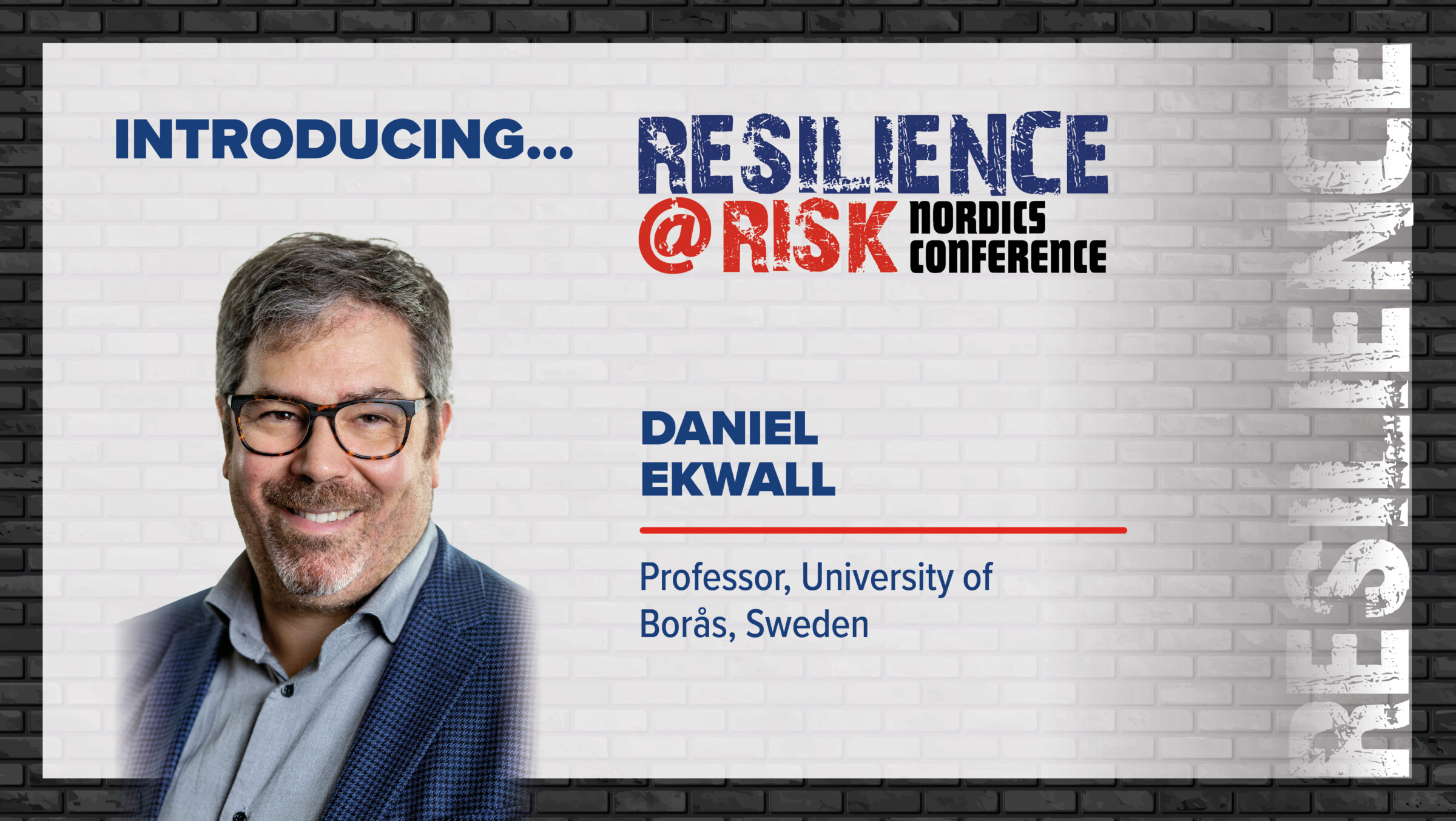
Securing the flow of goods, he said, means companies have to achieve ‘business as usual’ at all times, but they face a constant battle to deal with interruptions to the flow of goods which can be legal, illegal, intentional or unintentional. Supply chain vulnerabilities are often caused by the current trends in supply chain management:
- the trend towards just-in-time and lean logistics or efficiency rather than effectiveness
- the trend towards rising costs, globalisation, and more complex and longer supply chains
- the trend towards economies of scale with centralised distribution of manufacturing costs which can lower cost, but also lessen flexibility
- and the trend towards outsourcing of non-core business activities, and risks generated from a loss of control when it is often most needed
Finally, he discussed the trend towards consolidation of suppliers and the increased potential for wider impact and disruption to global supply chains.
NEXT MONTH
TAPA EMEA reviews the presentation by Björn Paulsson, transport expert at Sicopa, on ‘game changing’ supply chain resilience. He was joined by Per Hansson, Boozt.com, Sweden – a first & middle mile delivery expert, Anders Stennabba, Casa Delivery OY, Finland and Sweden – a last mile delivery expert, Daniel Hugosson, Elgiganten Logistik, Nordics & Europe – a logistics security expert, and Dag Erik Eng, Kingsröd Transport AS, Europe – a haulage expert.


